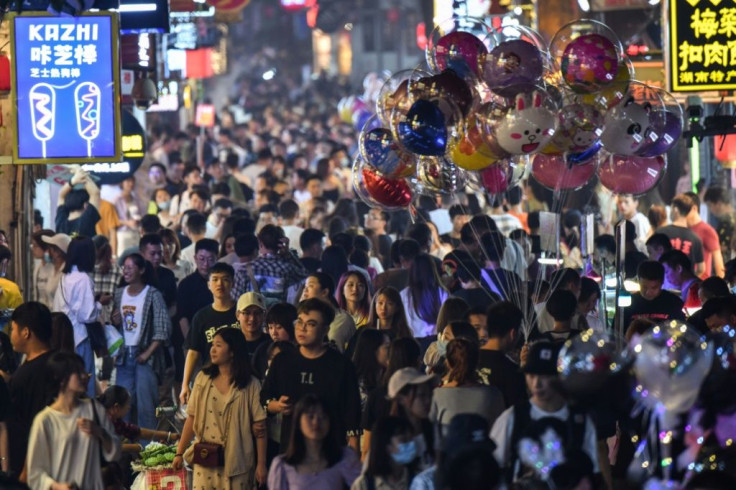China Retail Sales Return To Growth, Economic Recovery Continues
Chinese retail sales rose in August for the first time since the coronavirus pandemic struck, data showed Tuesday, as officials try to kickstart the crucial domestic consumer sector to fuel recovery in the world's number-two economy.
Spending had previously remained sluggish despite China bringing the virus largely under control, with shoppers still cautious owing to global uncertainty -- but economists believe the latest data suggests recovery is on a firmer footing.
The key indicator of consumer sentiment rose 0.5 percent on-year last month. A poll of analysts by Bloomberg News had forecast no growth.
Beijing has ramped up initiatives such as shopping festivals and voucher campaigns to spur consumer spending.
The latest reading is an improvement on the 1.1 percent drop seen in July and much better than the 20.5 percent plunge suffered in January-February when millions of people were put into lockdown to prevent the virus from spreading.
With external demand expected to remain weak as China's major trading partners struggle to contain the disease, China has redoubled efforts to encourage its exporters to target its vast local market instead.
Oxford Economics economist Louis Kuijs said the economic recovery was "on a reasonably firm footing now... with solid investment growth, gradually recovering consumption momentum and resilient exports".
Industrial output, which has recovered more quickly than retail, strengthened further, rising 5.6 percent, which also beat forecasts and improved on July's 4.8 percent increase.

Julian Evans-Pritchard from Capital Economics said that with fiscal spending set to be ramped up and a revival in consumer confidence, China's economy was on track to return to its pre-virus growth rate before the end of the year.
On Tuesday, National Bureau of Statistics spokesman Fu Linghui told reporters that China's economy had a "sustained steady recovery".
But he cautioned that with "mounting uncertainties" internationally and "pronounced domestic structural problems, there remains huge pressure to keep employment and businesses stable, and to safeguard people's livelihood".
The urban unemployment rate, a cause for concern given China's large number of fresh graduates, inched down to 5.6 percent.
Analysts have warned that the real level of unemployment is likely higher than official numbers suggest, with smaller businesses hit hard by the virus fallout.
Despite the stronger data in August, Nomura chief China economist Lu Ting cautioned that rising US-China tensions could hit exports and manufacturing investment.
Although tensions with the US have escalated on various fronts, top negotiators from Washington and Beijing have been pushing ahead with a partial trade deal signed in January, which marked a truce in a long-running and bruising trade war.
And China's customs tariff commission said Tuesday it would extend a year-long exemption of 16 categories of products from US tariffs, ranging from seafood products to anti-cancer drugs.
© Copyright AFP 2024. All rights reserved.





















